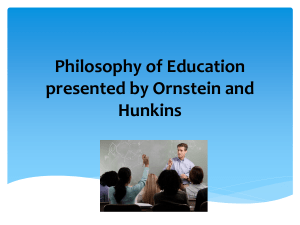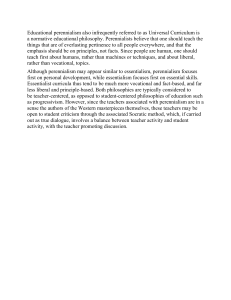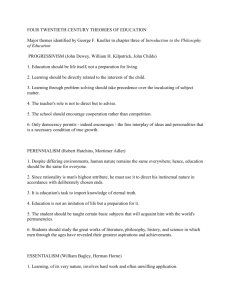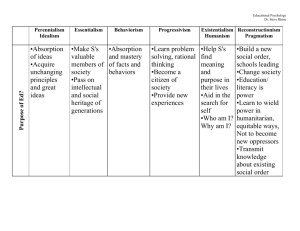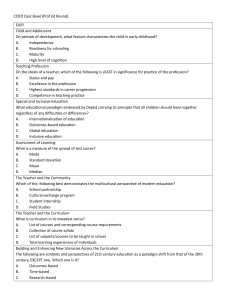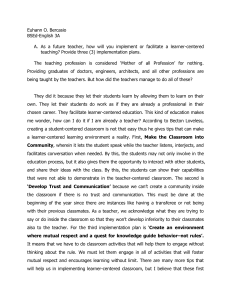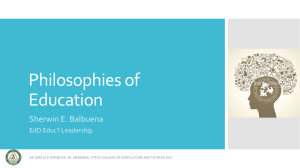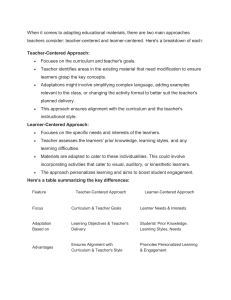Education Characteristics & Theories Overview
advertisement
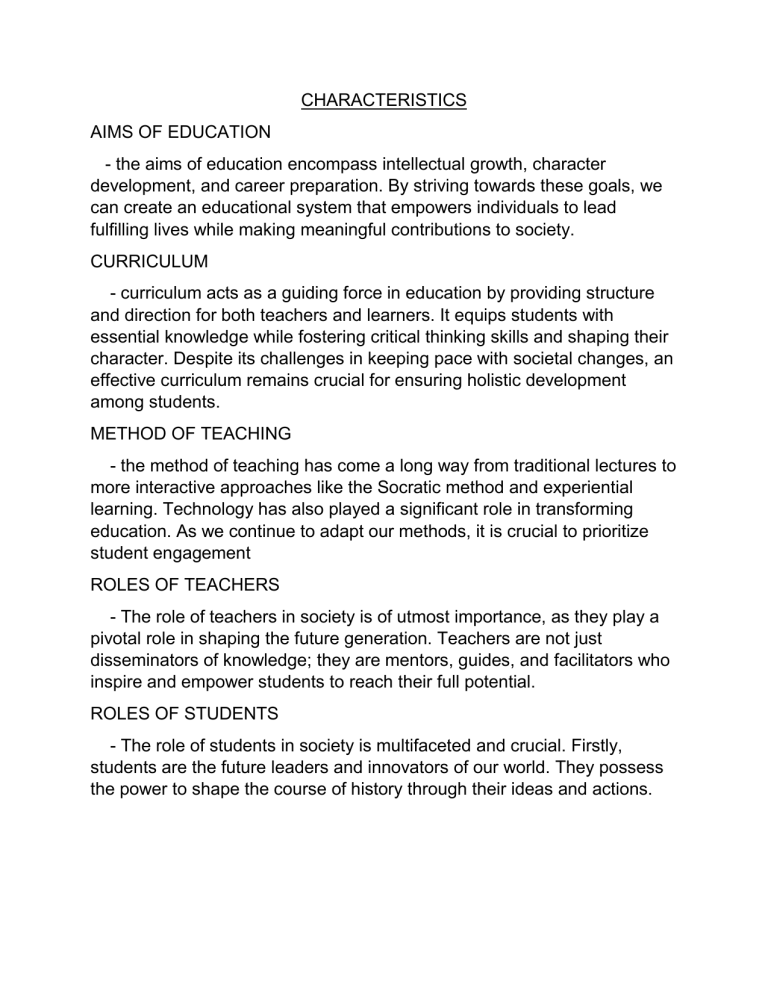
CHARACTERISTICS AIMS OF EDUCATION - the aims of education encompass intellectual growth, character development, and career preparation. By striving towards these goals, we can create an educational system that empowers individuals to lead fulfilling lives while making meaningful contributions to society. CURRICULUM - curriculum acts as a guiding force in education by providing structure and direction for both teachers and learners. It equips students with essential knowledge while fostering critical thinking skills and shaping their character. Despite its challenges in keeping pace with societal changes, an effective curriculum remains crucial for ensuring holistic development among students. METHOD OF TEACHING - the method of teaching has come a long way from traditional lectures to more interactive approaches like the Socratic method and experiential learning. Technology has also played a significant role in transforming education. As we continue to adapt our methods, it is crucial to prioritize student engagement ROLES OF TEACHERS - The role of teachers in society is of utmost importance, as they play a pivotal role in shaping the future generation. Teachers are not just disseminators of knowledge; they are mentors, guides, and facilitators who inspire and empower students to reach their full potential. ROLES OF STUDENTS - The role of students in society is multifaceted and crucial. Firstly, students are the future leaders and innovators of our world. They possess the power to shape the course of history through their ideas and actions. EDUCATIONAL THEORIES ESSENTIALISM - Despite its limitations, essentialism has had a profound impact on various fields including philosophy, psychology, education, and art. It continues to shape our understanding of identity, morality, and the nature of reality itself. PERENNIALISM - While perennialism has faced criticism for its emphasis on traditional texts at the expense of more contemporary perspectives, its focus on cultivating intellectual curiosity and critical thinking skills remains relevant today. By grounding education in timeless ideas, perennialism provides students with a solid foundation upon which they can build their own unique understanding of the world. PROGRESSIVISM - progressivism was a significant movement that aimed to tackle the challenges brought about by industrialization. Its impact can still be seen today through various reforms implemented during this period that continue to shape our society. HUMANISM - humanism champions the power of humans to shape their own destiny through rationality and empathy. It serves as a reminder that our greatest achievements lie not in divine intervention but in our ability to understand ourselves and each other. CONSTRUCTIVISM - constructivism offers a powerful framework for education that promotes active engagement, critical thinking skills, and social interaction. By embracing this approach, educators can create rich learning environments that empower students to become lifelong learners capable of constructing their own knowledge. SUMMARY - Shifting from teacher-centered to learner-centered teaching is crucial for fostering self-regulated learning and enhancing student engagement. Research studies have consistently shown that learner-centered approaches promote autonomy, diverse learning strategies, and active participation among students. Matsuyama et al. (2019) found that students in a learner-centered context demonstrated higher levels of self-regulation compared to traditional teacher-centered settings. Bature (2020) highlighted the benefits of student-centered classrooms in promoting collaborative learning environments and fostering critical thinking skills. Additionally, research by Camac (2018) emphasized the effectiveness of student-centered methodologies, particularly in e-learning environments, where students achieved higher academic scores and reported a more positive learning experience. Overall, embracing learner-centered teaching methodologies empowers students to take ownership of their learning, enhances critical thinking skills, and promotes lifelong learning habits essential for success in the modern world.
